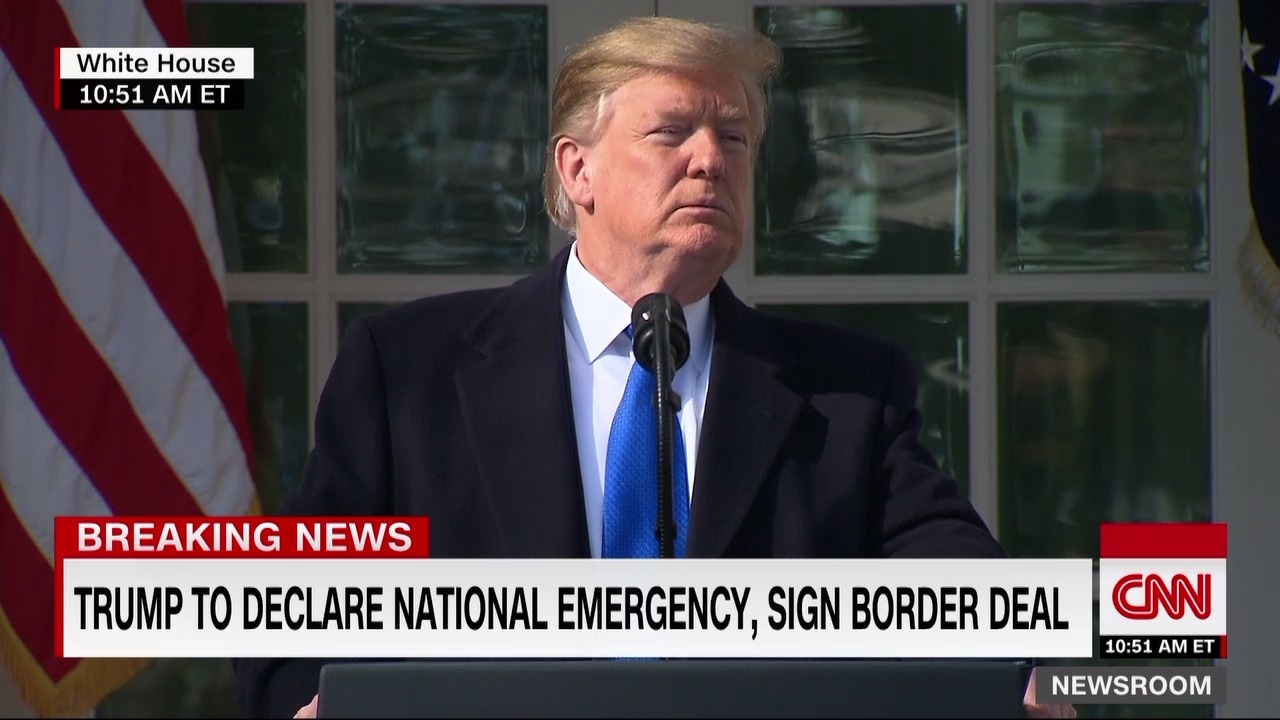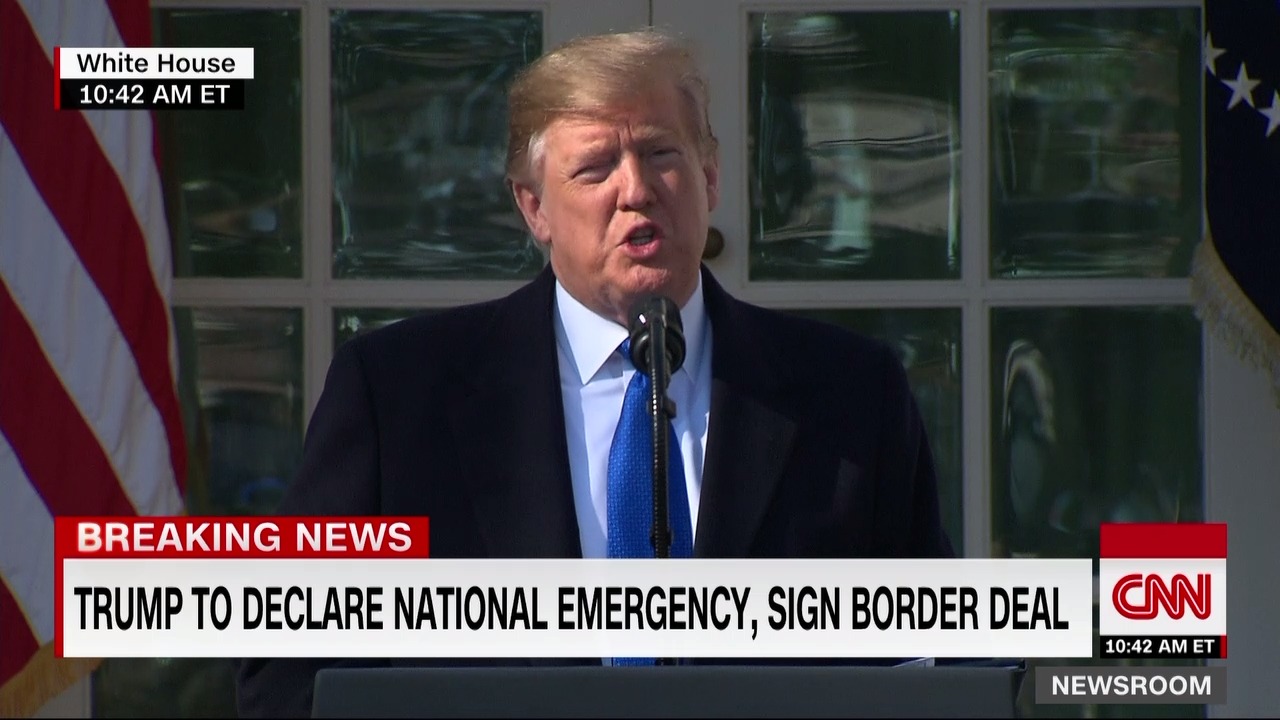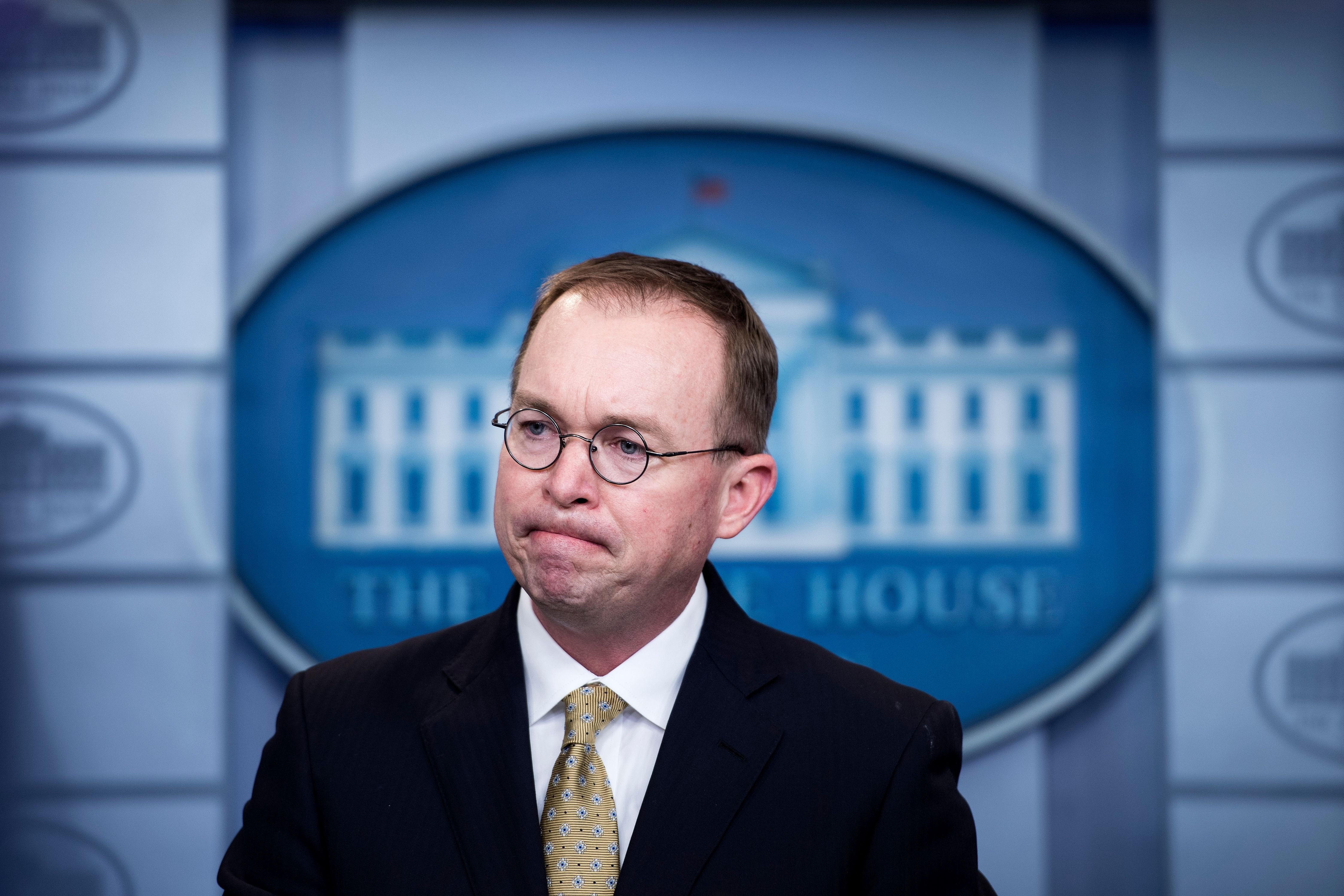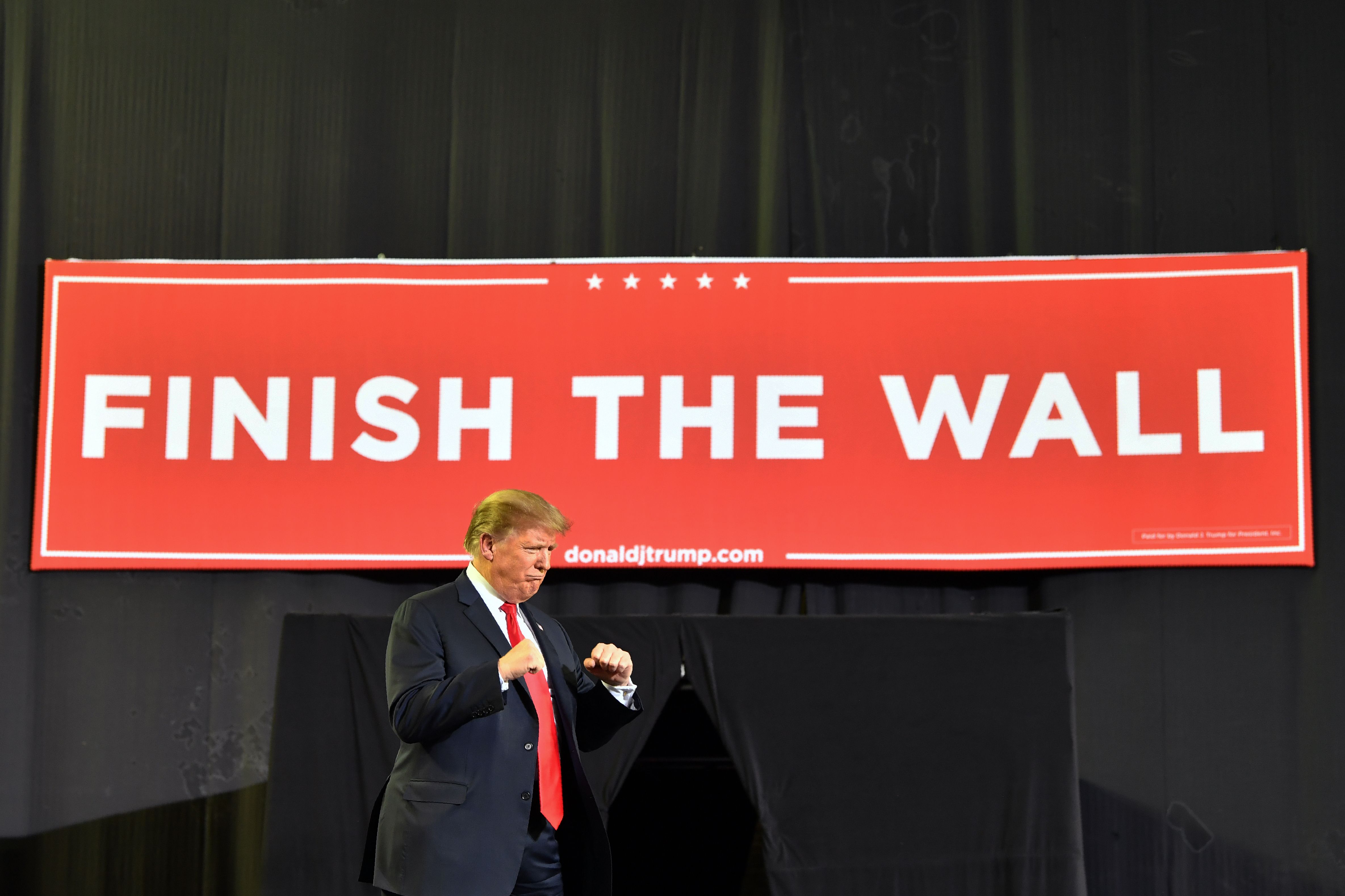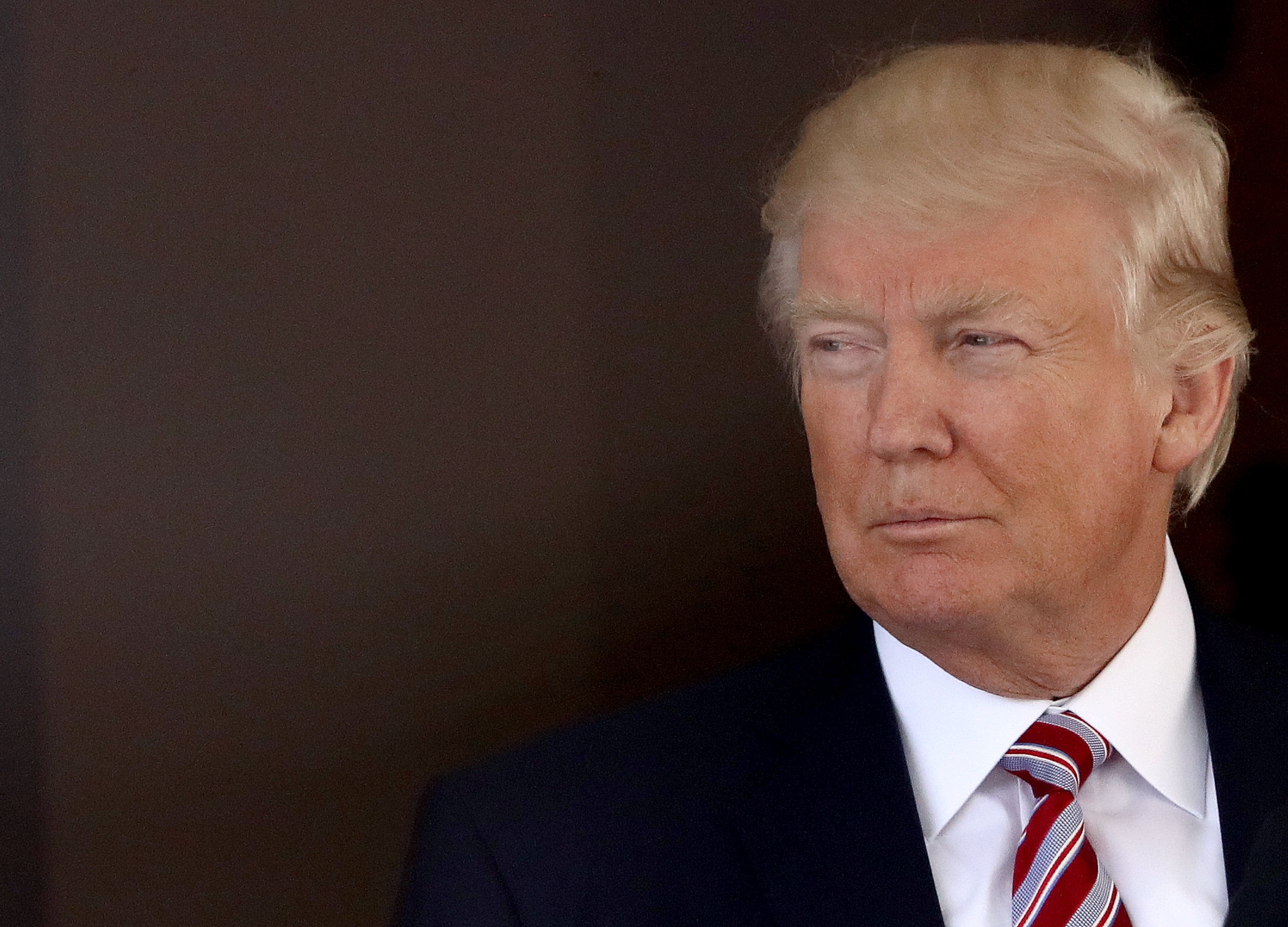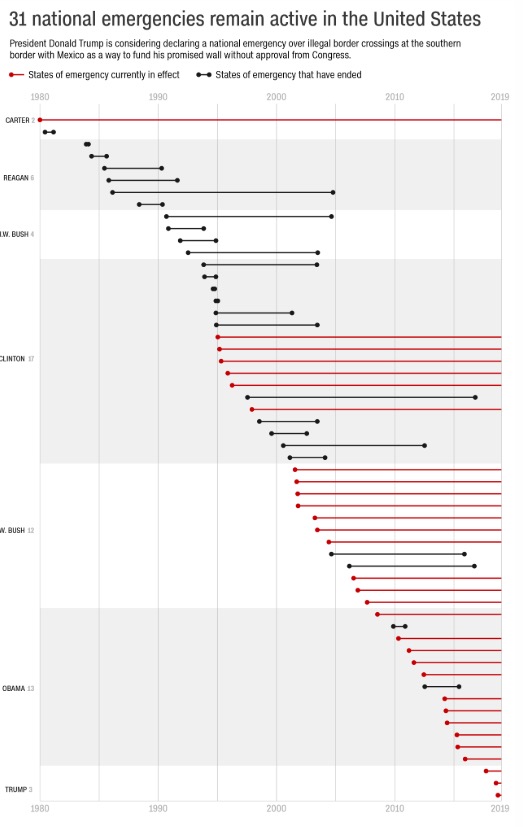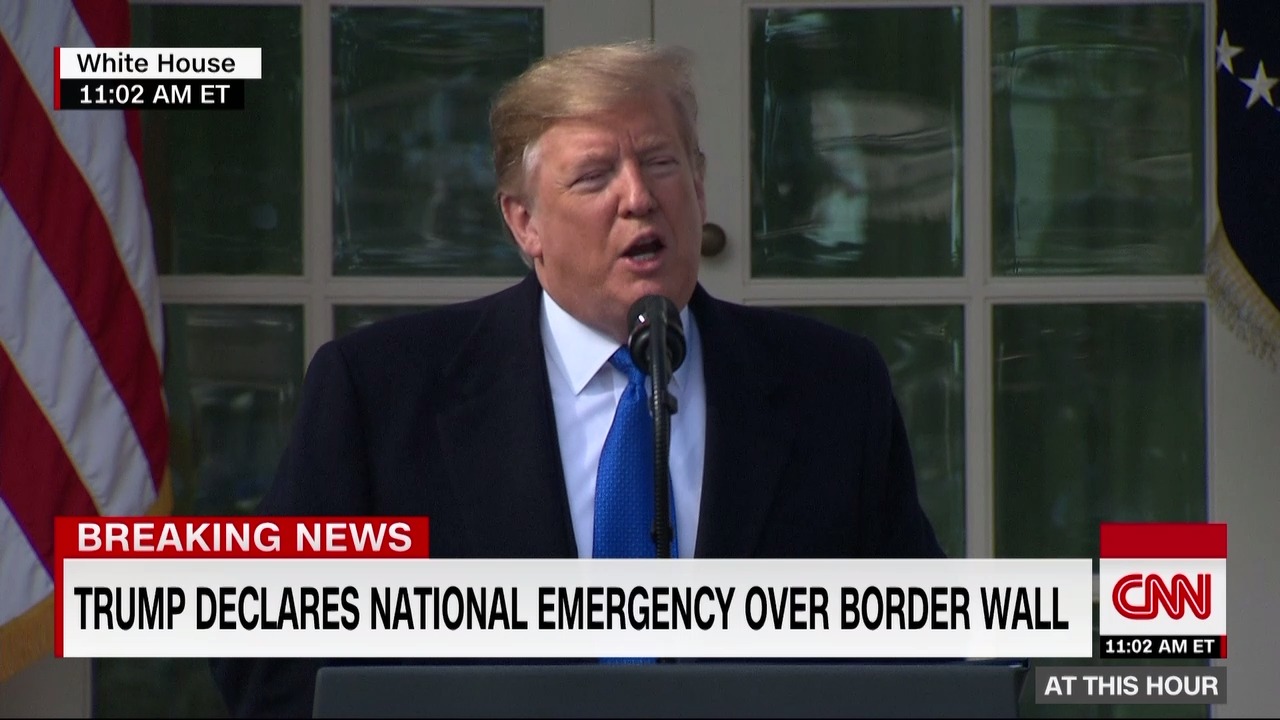
President Trump said he'll sign the final paper work to declare a national emergency to fund his wall as soon as he gets back to his office — and he's already anticipating a legal challenge.
"So the order is signed. And I'll sign the final papers as soon as I get into the Oval Office. And we will have a national emergency," Trump said.
After he signs national emergency and executive action paperwork, Trump said, "We will then be sued," rattling off a possible chain of events, which included bad ruling in the 9th Circuit Court, which he has previously lamented.
"We will possibly get another bad ruling, and then we’ll get another bad ruling, and then we’ll end up in the Supreme Court," Trump said, comparing the process to challenges to his administration's travel ban.
"And then, hopefully, we'll get a fair shake."
What this is about: There has been speculation that Democrats or landowners on the Souther border would sue if President Trump declared a national emergency to build the wall.
Speaker of the House Nancy Pelosi said just yesterday that the Democrats could take legal action.
"I may. That's an option," she told reporters Thursday.
Watch the moment:




